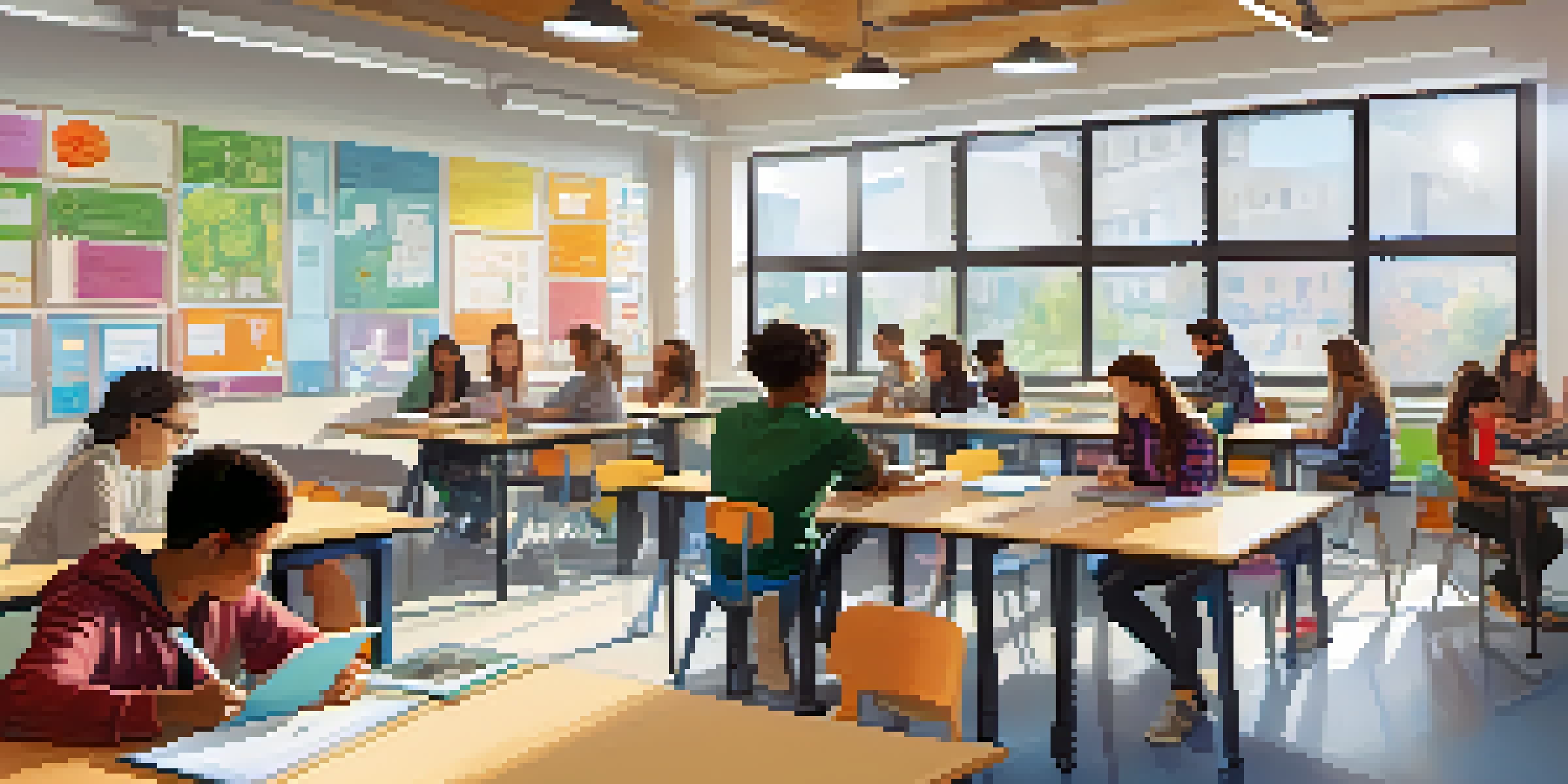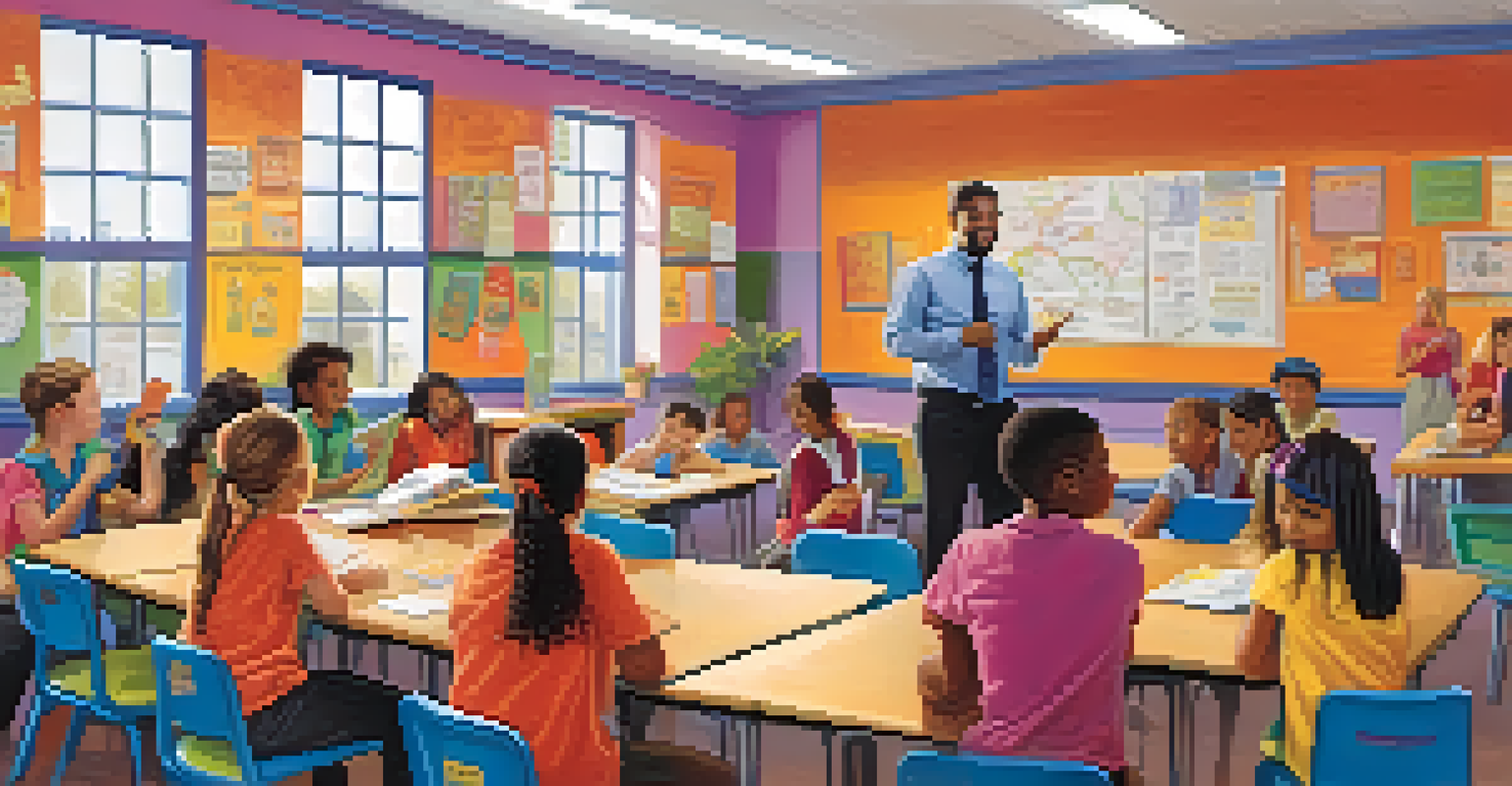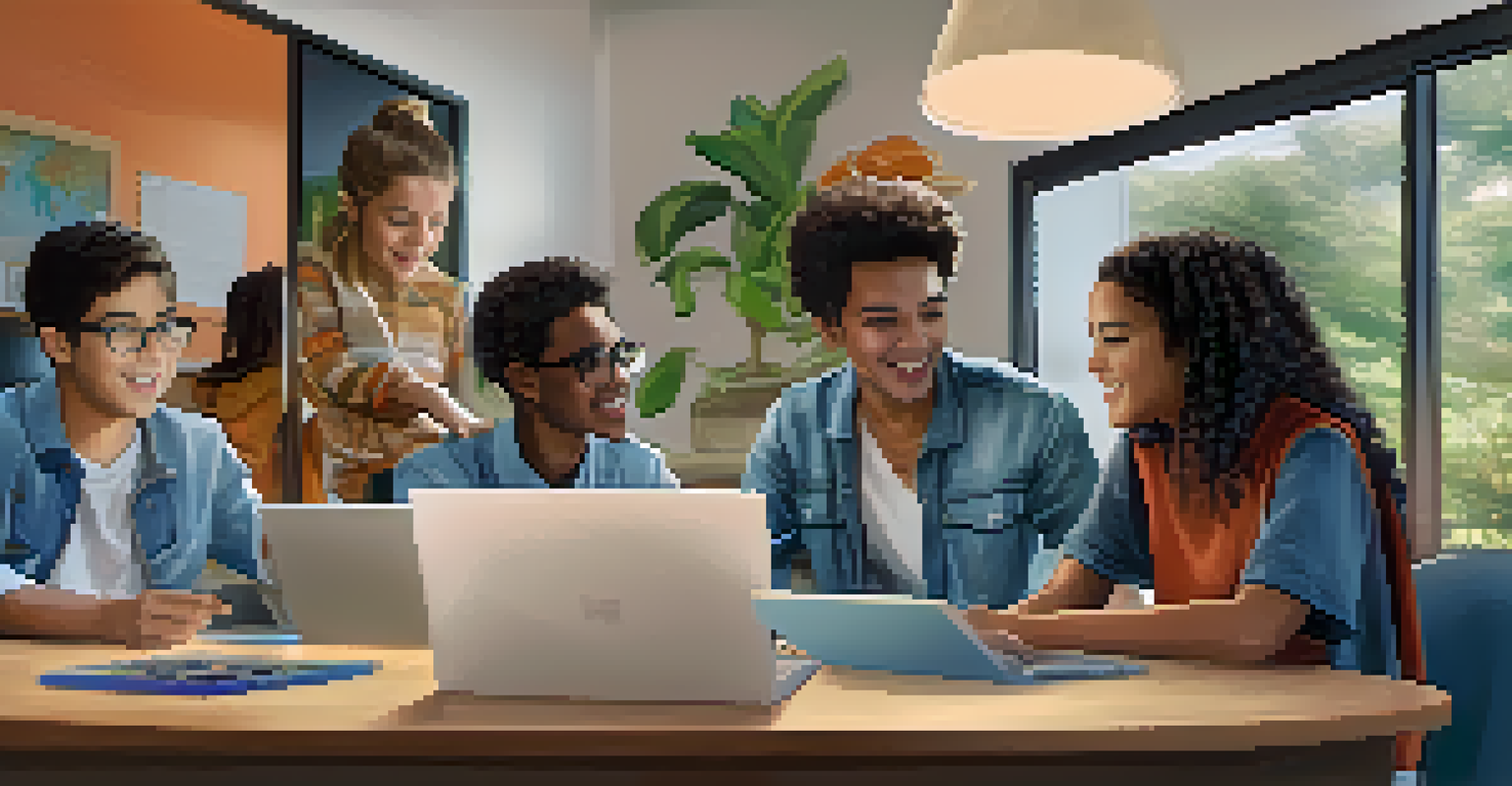Connecting the Dots: Adaptive Learning and Social Skills

Understanding Adaptive Learning and Its Benefits
Adaptive learning is an educational approach tailored to individual needs. By using technology and data analysis, it adjusts content and teaching methods based on a learner's performance and preferences. This personalized technique ensures that students engage with material that suits their learning styles, ultimately boosting their comprehension.
Education is not the filling of a pail, but the lighting of a fire.
The benefits of adaptive learning are significant; students often experience improved motivation and retention rates. Because the learning pace is customized, learners can grasp concepts more thoroughly before moving on to the next topic. This means less frustration and a more enjoyable educational experience overall.
Moreover, adaptive learning environments often foster a sense of autonomy. When students feel empowered to take charge of their learning paths, they are more likely to develop a positive attitude toward education, paving the way for lifelong learning. This adaptability is crucial in today's fast-paced world, where one-size-fits-all solutions often fall short.
The Role of Social Skills in Learning
Social skills are essential for effective communication and collaboration. They help individuals navigate social interactions both in and out of the classroom. From sharing ideas to resolving conflicts, these skills are critical for personal and professional success.

In educational settings, strong social skills can enhance group work and peer interactions. Students who can communicate well tend to participate more actively, leading to deeper understanding and knowledge retention. Furthermore, these skills help create a positive classroom environment, where everyone feels valued and respected.
Personalized Learning Boosts Engagement
Adaptive learning tailors educational content to individual needs, enhancing student motivation and retention.
Building social skills also contributes to emotional intelligence. As students learn to recognize and manage their emotions, they become better equipped to empathize with others. This emotional awareness can lead to more meaningful connections, which are vital for collaborative learning.
How Adaptive Learning Supports Social Skills Development
Adaptive learning platforms can create opportunities for students to practice social skills in a safe environment. By incorporating group activities, discussions, and peer feedback into the curriculum, these platforms encourage collaboration. This hands-on approach helps students develop vital communication skills.
The great aim of education is not knowledge but action.
Additionally, the personalized nature of adaptive learning allows educators to identify students who may struggle with social interactions. Teachers can then provide targeted support, helping those students gain confidence in their abilities. This tailored guidance fosters a sense of belonging and encourages positive social behavior.
Moreover, technology-enabled adaptive learning can simulate real-world scenarios where social skills are vital. Through role-play activities and interactive simulations, students can experiment with different social interactions, allowing them to learn from mistakes in a low-stakes setting.
Creating a Safe Environment for Practice
A key aspect of developing social skills through adaptive learning is establishing a safe space for practice. Students need to feel comfortable expressing themselves without fear of judgment. Building this trust can lead to more open communication and collaboration among peers.
Educators play a pivotal role in fostering this safe environment. By modeling positive social interactions and demonstrating vulnerability, teachers can encourage students to engage with one another. This approach not only enhances social skills but also strengthens the teacher-student relationship.
Social Skills Enhance Learning Outcomes
Strong social skills contribute to effective communication and collaboration, leading to deeper understanding in educational settings.
Furthermore, incorporating regular feedback into the learning process can help students understand their social strengths and areas for improvement. Constructive feedback allows learners to reflect on their interactions and make adjustments, promoting continuous growth in their social capabilities.
The Influence of Technology on Social Learning
Technology has transformed how students learn and interact with each other. Online platforms and collaborative tools facilitate communication and teamwork, making it easier for students to connect. This digital landscape offers unique opportunities for practicing social skills beyond the traditional classroom.
Moreover, technology can provide resources that help students understand social dynamics better. Interactive games and simulations introduce concepts like empathy and conflict resolution in a fun way. These engaging elements stimulate interest and motivate students to enhance their social skills.
However, it's essential to balance online interactions with face-to-face communication. While technology can facilitate learning, real-world experiences are crucial for developing authentic social skills. Encouraging a mix of both ensures that students are well-rounded in their social abilities.
Measuring Progress in Social Skills Development
Assessing social skills development can be challenging, but it's vital for understanding student growth. Educators can employ various methods, such as observations, self-assessments, and peer evaluations. These tools provide insights into how students interact and collaborate with their peers.
Adaptive learning systems often include analytics that track student engagement in social activities. By examining metrics like participation rates and peer feedback, educators can gauge the effectiveness of their strategies. This data can help refine approaches to social skills training and improve overall student experiences.
Technology Supports Social Skill Growth
Technology-enabled adaptive learning creates opportunities for practicing social skills through interactive simulations and group activities.
Additionally, fostering a culture of reflection can encourage students to take ownership of their social development. Regularly discussing goals and progress with students empowers them to set personal objectives and celebrate their achievements, reinforcing the importance of social skills in their learning journey.
Conclusion: The Future of Learning and Social Skills
As education continues to evolve, the integration of adaptive learning and social skills development is more important than ever. The ability to adapt to individual needs while fostering essential interpersonal skills sets students up for success in a rapidly changing world. Education is no longer just about academic knowledge; it's about preparing learners for real-life challenges.
By embracing adaptive learning strategies, educators can create rich learning environments that nurture both cognitive and social growth. This holistic approach enables students to become well-rounded individuals capable of thriving in diverse settings.

Ultimately, the goal is to equip students with the tools they need to navigate their futures confidently. By connecting the dots between adaptive learning and social skills, we can cultivate a generation of learners who are not only knowledgeable but also empathetic and collaborative.